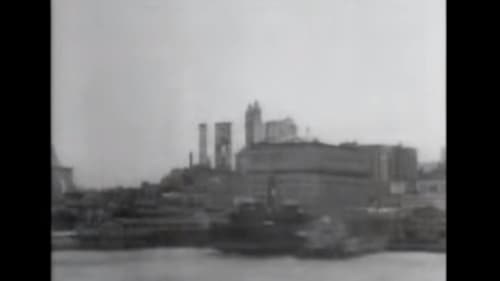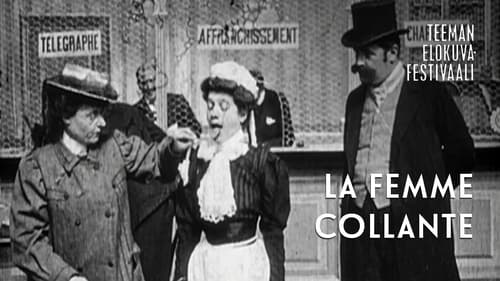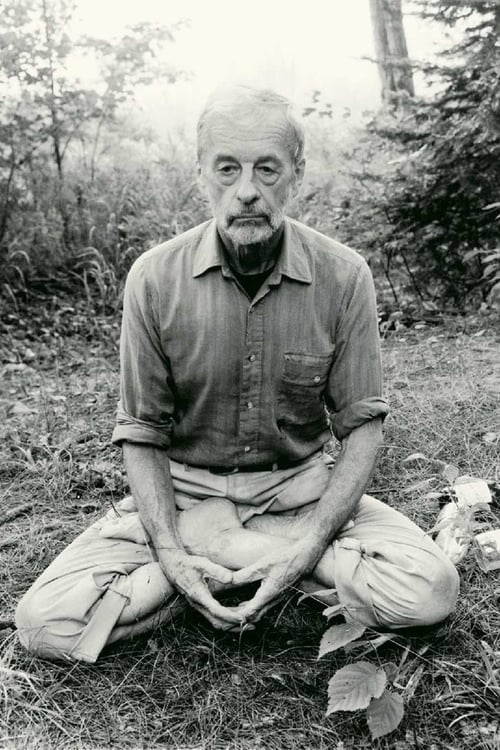Pursuit of Happiness (1940)
장르 :
상영시간 : 7분
연출 : Rudy Burckhardt
시놉시스
Photographer Rudy Burckhardt shows us the ebb and flow of people rushing about Manhattan. Equally exhilarating in his novel approach to snap images quickly on the run, a method he inaugurated and that continues to the present day. In film, he added slow and fast motion, split-screens and superimpositions to his repertory.

Christopher Young experiments with objects and their uses.

Synchromy No. 2, synchronized to the "Evening Star" aria from Wagner's Tannhäuser, uses a statue of Venus to represent the star.

Parabola is a celebration of film’s ability to create new ways of seeing the forms around us. Creating juxtapositions between light/shadow, stasis/motion, and form/music, this black-and-white short invites us to see the parabolic curve, or “nature’s poetry,” as both invigorating and beguiling.

Cale makes a short film called Police Car. No sound, and it is in black & white. Part #31 in the Fluxus Film series.

A montage of elephants, children, Native Americans, logging, a barnstormer, a blimp, people on and in the water, and a man who sings like a bird.

Carousel - Animal Opera (c.1938), a visual symphony by artist and sculptor Joseph Cornell.

Single frame exposures of words.

Nymphs and cupids dance in celebration of the arrival of Spring.

This short film consists of a crazy old colonel being asked to entertain party guests about his exploits of daring. However, being a totally insane old coot, he runs amok acting out his war-time heroics--smashing and throwing everything in the room!

A runaway barrel wreaks havoc all over the city.

Experimental color film that shows a magician and his assistant making objects and people appear and disappear. Then they stack up some blocks and a moving picture of a little girl appears on them.

One of the first color films in Europe, made with the Gaspar Color process.

Polin performs a song.

A balding man drinks a whole bottle of hair tonic. The unexpected surplus of hair promises a successful showbiz career for him and his wife.

This sequel to Themis similarly simulates the movement of abstract colours and shapes to form distinct visual patterns.

A beautiful panoramic view of lower New York from Barclay Street to Battery Park, showing a beautiful stereoscopic effect of the sky-scrapers in the business section of the city.

To the toccata portion of Bach's "Toccata and fugue in D minor," we watch a play of sorts. Blue smoke forms a background; a grid of black lines is the foreground. Behind the lines, a triangle appears, then patterns of multiple triangles. Their movements reflect the music's rhythm. Behind the barrier of the black lines, the triangle moves, jumps, and takes on multiple shapes. In contrast with the blue and the black, the triangles are warm: orange, red, yellow. The black lines bend, swirl into a vortex, then disappear. The triangle pulsates and a set of many of them rises.

A lady uses her maid to lick her stamps, when an overtly excited man notices the maid, forcibly kisses her, and they wind up stuck to each other.

Starting in the late 1930s, illustrator and experimental animator Douglass Crockwell created a series of short abstract animated films at his home in Glen Falls, New York. The films offered Crockwell a chance to experiment with various unorthodox animation techniques such as adding and removing non-drying paint on glass frame-by-frame, squeezing paint between two sheets of glass, and finger painting. The individual films created over a nine-year period were then stitched together for presentation, forming a nonsensical relationship that only highlights the abstract qualities of the images. —Kansas City Electronic Music and Arts Alliance

A pretty maid is out walking and encounters a series of military men, starting with a private, who lose her to higher ranks.




